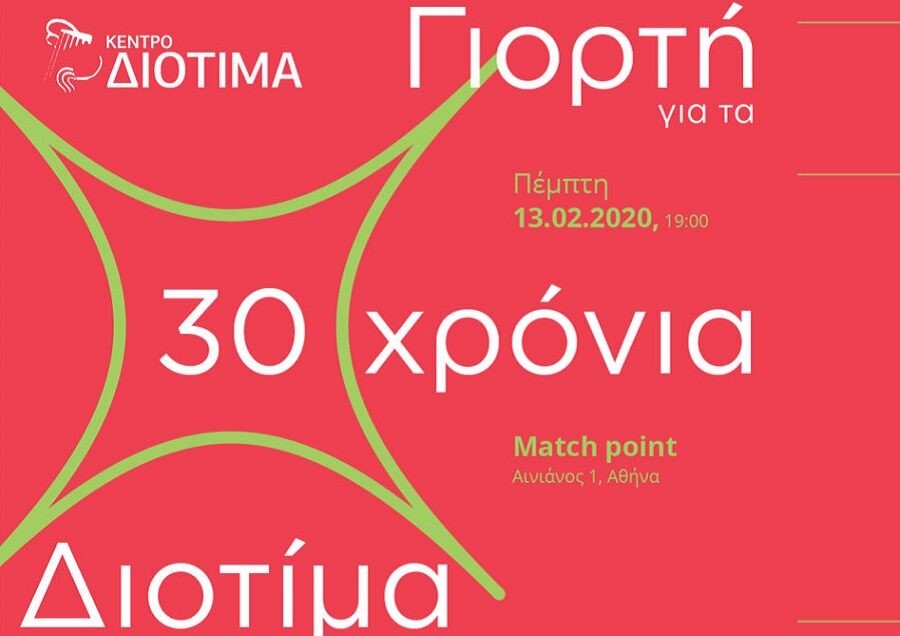With a fixed point of reference highlighting all aspects of gender inequalities and aiming to combat them, the 30-year journey of the Diotima Center, seen today as an archive of memory and experiences, marks for us and includes:
A space for meetings – discussions, exchange of ideas, and interactions between people of different scientific-social origins, experiences, and reflection on our action and the political context in which it occurs. The connection and measurement of the knowledge we acquire with theoretical issues and gender methodologies, the assessment of the effectiveness of our action, as well as its political ramifications, have been the measure of our adherence to our feminist values and ideas throughout these years.
Our active participation in social and political actions of the feminist movement and the field of (gender) rights; in civil society interventions for changes in the legal and regulatory framework that will not ignore the gender dimension; in transnational programs that inter-connect us with corresponding groups and initiatives from all over Europe. Within such a wide network – field that includes the action of heterogeneous active subjects and practices, we intervene with the strategic aim of creating the bases for wider pluralist fronts in terms of horizontality and in opposition to established hierarchies.
Advocacy in favor of gender rights, in addition to our starting point and statutory principle, permeates our action and is carried out mainly through the support of women themselves, their empowerment, and self-organization.
Research in the field with a gender perspective that involves us in the direct recording and highlighting of narratives about silenced or distorted aspects of social relations and the lives of various subjects. The analysis of this raw material and socially “grounded” knowledge is done by making use of theoretical tools that allow the formulation of substantiated political proposals and practices, as well as new research questions, while at the same time it gives us feedback with new knowledge for the (re)determination of goals and our actions.
The provision of specialized support to all and especially to those women who have been excluded from opportunities for knowledge, work, and development, live a life exposed to multiple risks, as well as those who have suffered the trauma of gender-based violence, which opens us up to mental burdens but also in the power of experienced social solidarity and in the collective drive to break the established patriarchal normality.
Our educational activities for the training and awareness of many different professionals/officials, in order to open up a field of reflection and questioning regarding gender issues, to acquire “tools” for recognizing and understanding the importance and consequences of gender-based violence and discrimination, an experience that functionally connects us to institutional practices, dominant and widespread perceptions and motivates us to stick to the systematic critical approach to gender understandings.
The information actions and awareness campaigns of the general public contribute to the visibility of the phenomenon of gender-based violence and the formation of a collective culture of zero tolerance, while at the same time creating a social and political space where a lively dialogue unfolds revealing a largely unspoken “controversy of ideas around feminism and gender”, which animates us and mobilizes us for new interventions.
Finally, it is worth pointing out that the development of our actions and our daily interaction during the last years with the immigrant/refugee population has radicalized our outlook, pushed us in practice to critical respect for diversity, trained us in the interdisciplinary approach – where they intertwine the multiple inequalities and discriminations of gender, race, ethnocultural origin, religion, ability – and taught reflexes of inclusion and response with openness and tolerance both to the diversity among us and to all those subjectivities (individual and collective) with which we develop common action.
All this with anxieties, frustrations, conflicts, and sorrows but also joys, small triumphs, and synergies as it happens and corresponds to real life.





